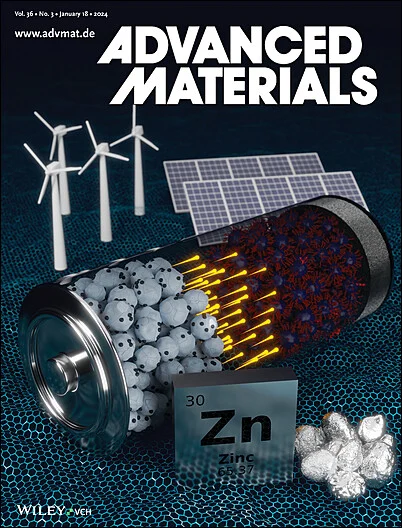Translational Selenium Nanoparticles Promotes Clinical Non-small-cell Lung Cancer Chemotherapy via Activating Selenoprotein-driven Immune Manipulation
IF 27.4
1区 材料科学
Q1 CHEMISTRY, MULTIDISCIPLINARY
引用次数: 0
Abstract
Reconstructing the tumor immune microenvironment is an effective strategy to enhance therapeutic efficacy limited by immunosuppression in non-small-cell lung cancer (NSCLC). In this study, it is found that selenium (Se) depletion and immune dysfunction are present in patients with advanced NSCLC compared with healthy volunteers. Surprisingly, Se deficiency resulted in decreased immunity and accelerated rapid tumor growth in the mice model, which further reveals that the correlation between micronutrient Se and lung cancer progression. This pioneering work achieves 500-L scale production of Se nanoparticles (SeNPs) at GMP level and utilizes it to reveal how and why the trace element Se can enhance clinical immune-mediated treatment efficacy against NSCLC. The results found that translational SeNPs can promote the proliferation of NK cells and enhance its cytotoxicity against cancer cells by activating mTOR signaling pathway driven by GPXs to regulate the secretion of cytokines to achieve an antitumor response. Moreover, a clinical study of an Investigator-initiated Trial shows that translational SeNPs supplementation in combination with bevacizumab/cisplatin/pemetrexed exhibits enhanced therapeutic efficacy with an objective response rate of 83.3% and a disease control rate of 100%, through potentiating selenoprotein-driven antitumor immunity. Taken together, this study, for the first time, highlights the translational SeNPs-enhanced therapeutic efficacy against clinical advanced NSCLC.

求助全文
约1分钟内获得全文
求助全文
来源期刊

Advanced Materials
工程技术-材料科学:综合
CiteScore
43.00
自引率
4.10%
发文量
2182
审稿时长
2 months
期刊介绍:
Advanced Materials, one of the world's most prestigious journals and the foundation of the Advanced portfolio, is the home of choice for best-in-class materials science for more than 30 years. Following this fast-growing and interdisciplinary field, we are considering and publishing the most important discoveries on any and all materials from materials scientists, chemists, physicists, engineers as well as health and life scientists and bringing you the latest results and trends in modern materials-related research every week.
 求助内容:
求助内容: 应助结果提醒方式:
应助结果提醒方式:


